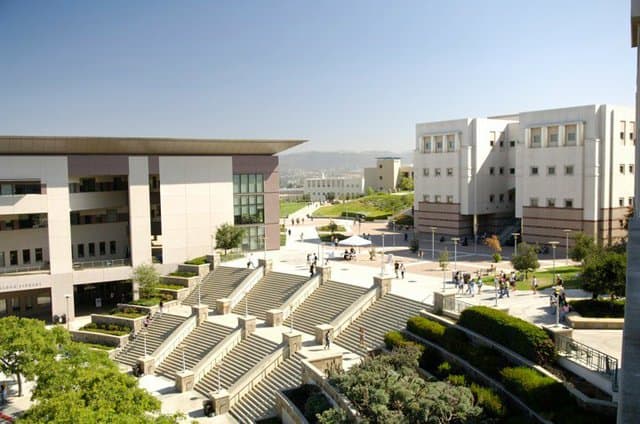The coronavirus pandemic has brought with it an educational inequity crisis in California that has had a particularly damaging effect on American Indian students.
That is the main discovery of a recent survey conducted by a group of nonprofit organizations led by the California Indian Culture and Sovereignty Center (CICSC) at Cal State San Marcos.
The survey found that one in four American Indian and Alaskan Native (AIAN) students in the state does not have access to a computer and reliable internet access.
The findings, released in late August, were based on an online survey in an effort to support AIAN students in California who have been historically underserved. The survey was conducted in May and June and represented 97 tribes. The research study received Instructional Review Board approval in accordance with CSUSM procedures for research involving human subjects.
The CICSC led the survey along with the nonprofit California Indian Education for All. Other partners were the California Indian Museum and Cultural Center and the San Diego County Office of Education.
“The California Indian Culture and Sovereignty Center was proud to take the lead on this survey,” said Joely Proudfit, the center’s director and the chair of the American Indian studies department at CSUSM. “COVID-19 has made visible the structural inequities that plague our education systems, and nowhere is that more evident than within our California AIAN student populations. We look forward to working with educators, policymakers, parents and advocates to address the inequities and better serve our AIAN K-12 students in California.”
The research team found that child care has been an ongoing challenge for families, with nearly half of those surveyed experiencing gaps. In other key takeaways from the survey:
•44% of respondents reported a learning difference or disability.
•13% of respondents said they had no access to a specialist for their special needs’ child due to COVID-19, and 19% said they had only limited access.
•More than 40% of families surveyed said they rely on their school for meals.
•Nearly one in 10 families said there is sometimes or often not enough to eat at home.
•36% of students’ psychological well-being has worsened due to COVID-19.
•Nearly 70% of students are not getting enough physical exercise as a result of COVID-19.
•45% of families experienced a decrease in income during the pandemic.
“I want to thank all the organizations that participated in this review of COVID-19’s path of destruction in our communities,” said James C. Ramos, who represents the 40th District in the California State Assembly and is a lifelong resident of the San Manuel Indian Reservation in San Bernardino County.
“Their findings revealed what we suspected – the disease was especially vicious among communities of color. In my own American Indian Alaska Native community, the mortality rate was almost two times that of white people. The study also begins the process of digging deeper into why these communities suffered disproportionally to their populations. It is critical that studies like these continue so that we can undertake the difficult work of remedying disparities.”
About California State University San Marcos
Building on an innovative 30-year history, California State University San Marcos is a forward-focused institution, dedicated to preparing future leaders, building great communities and solving critical issues. Located on a 306-acre hillside overlooking the City of San Marcos, it is the only public four-year comprehensive university serving North San Diego, Southwest Riverside and South Orange counties.
The university enrolls more than 16,000 students. With approximately 2,000 employees, the institution is a Great College to Work For® (The Chronicle of Higher Education). As a recipient of the annual HEED Award since 2014 — a national honor recognizing U.S. colleges and universities that demonstrate an outstanding commitment to diversity and inclusion — CSUSM is committed to creating a diverse and inclusive environment.



















